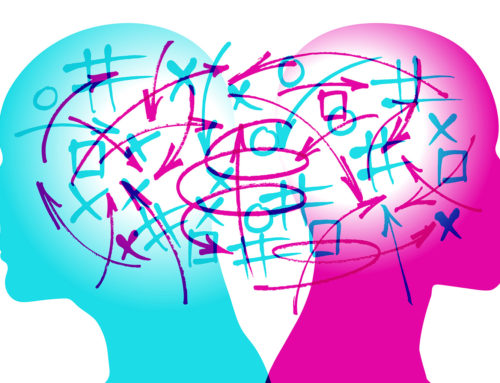Mindfulness meditation has become a wildly popular technique for decreasing stress and anxiety. Read on to discover the precise benefits and challenges of using mindfulness meditation.
 By Tchiki Davis, Ph.D.
By Tchiki Davis, Ph.D.

Interest in mindfulness meditation has grown sharply over the past few years. In fact, Google searches for mindfulness have increased more than 400% in the last 15 years or so. It’s not hard to see why. Mindfulness research has shown it to have many positive impacts on our well-being. Recent research has even begun to explore the precise benefits and potential challenges of mindfulness. In this article, we’ll discuss some key questions that emerge: Which aspects of well-being is mindfulness meditation most useful for? Who is it most useful for and who might find other approaches more useful? And when is it most useful? With these insights we can make better use of mindfulness and start, or improve, a high-impact mindfulness practice.
Figure 1: Google search results for mindfulness from 2004 to 2020.

What is Mindfulness?
Although there are variations in the exact definition of mindfulness, John Kabat-Zinn, a leader in the field, defines mindfulness as “the awareness that emerges through paying attention on purpose, in the present moment, and nonjudgmentally to the unfolding of experience moment by moment”[1]. Some suggest that this definition can be broken up into two parts: attention focused on the present moment and a response to that experience that includes curiosity, openness, and acceptance[2]. Although mindfulness can be practiced in a variety of ways, mindfulness meditation appears to be the most popular, and most studied, mindfulness practice.
What Are the Benefits of Mindfulness Meditation?
 A recent meta-analysis of mindfulness-based therapy showed mindfulness-based therapy resulted in large effects on anxiety and moderate effects on depression[3]. A separate meta-analysis[4] across 47 different studies found that overall, the benefits of mindfulness meditation were small but significant. More specifically, mindfulness meditation resulted in moderate improvements in anxiety and depression after 8 weeks of use. This is comparable to, or possibly even larger than, the effects of antidepressants[4]. Even at 3-6 months following use, the benefits of mindfulness only decreased by 25-50%. Although the benefits of mindfulness on anxiety and depression are significant, there was little evidence that mindfulness affects other outcomes such as eating habits, sleep, or weight[5].
A recent meta-analysis of mindfulness-based therapy showed mindfulness-based therapy resulted in large effects on anxiety and moderate effects on depression[3]. A separate meta-analysis[4] across 47 different studies found that overall, the benefits of mindfulness meditation were small but significant. More specifically, mindfulness meditation resulted in moderate improvements in anxiety and depression after 8 weeks of use. This is comparable to, or possibly even larger than, the effects of antidepressants[4]. Even at 3-6 months following use, the benefits of mindfulness only decreased by 25-50%. Although the benefits of mindfulness on anxiety and depression are significant, there was little evidence that mindfulness affects other outcomes such as eating habits, sleep, or weight[5].
 This research is largely consistent with some data we recently collected to try to learn more about the benefits and challenges of meditation[6]. We asked 300 individuals to complete a survey about their experience with meditation. We found that 64% of our sample had tried meditation, and most of them did so to reduce stress or anxiety. Most reported benefits, while only 8.9% didn’t experience any noticeable benefits.
This research is largely consistent with some data we recently collected to try to learn more about the benefits and challenges of meditation[6]. We asked 300 individuals to complete a survey about their experience with meditation. We found that 64% of our sample had tried meditation, and most of them did so to reduce stress or anxiety. Most reported benefits, while only 8.9% didn’t experience any noticeable benefits.
Is Mindfulness for Everyone?
Although mindfulness is widely popular and beneficial for most who stick to it, it seems that mindfulness is a better fit for some people than others. For example, one study showed that people higher in the personality traits neuroticism (negative emotionality) and openness to experience benefited more from a mindfulness intervention[7]. Another study found that people low in mindfulness ability tended to benefit more from a mindfulness intervention[8].
Another consideration is that mindfulness may only appeal to particular kinds of people while feeling relatively unappealing to others. According to our research[6], 36% of people have never tried meditation. When we asked these people why they never tried meditation, the top 3 reasons were that they have no interest (30%), that meditation lacks credibility (26%), or that they don’t know about it (15%).
Other research shows that there are clear groups of people using mediation. For example, women of all age groups report higher levels of meditation use than men[9]. Given self-help in general is often seen as feminine[10], men may feel less comfortable using self-help activities like meditation.
In addition, because mindfulness involves self-awareness and self-acceptance, mindfulness meditation can sometimes be difficult if we struggle with one or both of these skills. For example, mindfulness may be problematic for those with a history of trauma and can sometimes lead to worsening of psychological problems like depression and anxiety. In fact, traumatic flashbacks are now listed as a known risk in the guidelines for administering Mindfulness Based Cognitive Therapy. In one group of meditators, 7.4% of them said negative experiences like these were bad enough to lead them to stop meditating altogether[11].
It makes sense that some people would benefit more from mindfulness while others would benefit less. We’re all unique and have different skills and different interests. If mindfulness meditation is a good fit, great! But if not, that’s fine too. There are other tools that can be used to boost happiness and well-being.
What Are The Challenges of Mindfulness Meditation?
 Some who use mindfulness profess that it is the most beneficial, impactful strategy that they know to reduce stress and improve their well-being. Others struggle to benefit from mindfulness and wonder what went wrong. In our sample[6], 50% of people who had tried meditation had stopped using it. Of the people who quit, about a quarter of them couldn’t find the time to practice, another quarter experienced no benefits, another quarter weren’t motivated enough to commit, and the last quarter quit for a variety of other reasons.
Some who use mindfulness profess that it is the most beneficial, impactful strategy that they know to reduce stress and improve their well-being. Others struggle to benefit from mindfulness and wonder what went wrong. In our sample[6], 50% of people who had tried meditation had stopped using it. Of the people who quit, about a quarter of them couldn’t find the time to practice, another quarter experienced no benefits, another quarter weren’t motivated enough to commit, and the last quarter quit for a variety of other reasons.
Indeed, mindfulness meditation can be difficult to learn, to use, and to stick to. Our research[6] shows that 33% of people have a hard time finding the time for mindfulness, 31% have a hard time focusing, and 18% have a hard time staying motivated. For it to be most beneficial, it requires an individual to devote a considerable amount of time, often several hours per week for at least 8 weeks[12]. That’s just not possible (or practical) for many people.
 The physical effort of doing mindfulness can also be significant for some. John Kabat-Zinn notes that sitting for a long time is not easy. People are likely to get uncomfortable and bored[13]. This may be especially true for those with physical pain or difficulties staying focused. Again, this suggests that even though the benefits of mindful meditation can be sizable, some of us can not easily perform the practice as intended and therefore may struggle to do enough mindfulness meditation to experience its full benefits.
The physical effort of doing mindfulness can also be significant for some. John Kabat-Zinn notes that sitting for a long time is not easy. People are likely to get uncomfortable and bored[13]. This may be especially true for those with physical pain or difficulties staying focused. Again, this suggests that even though the benefits of mindful meditation can be sizable, some of us can not easily perform the practice as intended and therefore may struggle to do enough mindfulness meditation to experience its full benefits.
How To Calm Your Mind With or Without Mindfulness
In our modern world, calming the mind is more important than ever. Mindfulness meditation is one promising solution to help you to be more present while putting your stress and anxiety in the back seat. For those who don’t find mindfulness to be effective or a good fit, there are other solutions that may be more accessible.
For example, our team of neuroscientists at Think Now has recently discovered that when you activate your brain in just the right ways, you can pull yourself out of the stressful buzzing thought patterns. These insights led to the development of a new neuroscience-based app that calms, focuses, and strengthens the mind within minutes.
The app can be used by meditators to steady the mind, warm-up to meditation, and to replace meditation in just a few minutes. And for non-meditators? It can be used to get a boost of calm with no meditation required.
References:
- Kabat‐Zinn, J. (2003). Mindfulness‐based interventions in context: past, present, and future. Clinical psychology: Science and practice, 10(2), 144-156.
- Bishop, S. R., Lau, M., Shapiro, S., Carlson, L., Anderson, N. D., Carmody, J., … & Devins, G. (2004). Mindfulness: A proposed operational definition. Clinical psychology: Science and practice, 11(3), 230-241.
- Khoury, B., Lecomte, T., Fortin, G., Masse, M., Therien, P., Bouchard, V., … & Hofmann, S. G. (2013). Mindfulness-based therapy: a comprehensive meta-analysis. Clinical psychology review, 33(6), 763-771.
- Hengartner, M. P., & Plöderl, M. (2018). Statistically significant antidepressant-placebo differences on subjective symptom-rating scales do not prove that the drugs work: effect size and method bias matter!. Frontiers in psychiatry, 9, 517.
- Goyal, M., Singh, S., Sibinga, E. M., Gould, N. F., Rowland-Seymour, A., Sharma, R., … & Ranasinghe, P. D. (2014). Meditation programs for psychological stress and well-being: a systematic review and meta-analysis. JAMA internal medicine, 174(3), 357-368.
- The study, performed by ThinkNow, recorded anonymous responses from 300 individuals in the US and Canada, about their experience with meditation, collected via an online survey. Responders were adults with 5% under 25 years of age, 50% 25-34 years old, 23% 35-44 years old, 12% 45-54 years old, and 9% over 55 years old. Approximately 10% obtained a post-graduate degree, 50% of responders achieved a Bachelor’s degree, and 40% achieved a post-high school degree or high school degree. All responses were inspected for erroneous or false responses, which were removed from the dataset.
- Krick, A., & Felfe, J. (2020). Who benefits from mindfulness? The moderating role of personality and social norms for the effectiveness on psychological and physiological outcomes among police officers. Journal of occupational health psychology, 25(2), 99.
- Kappen, G., Karremans, J. C., & Burk, W. J. (2019). Effects of a short online mindfulness intervention on relationship satisfaction and partner acceptance: The moderating role of trait mindfulness. Mindfulness, 10(10), 2186-2199.
- Upchurch, D. M., & Johnson, P. J. (2019). Gender differences in prevalence, patterns, purposes, and perceived benefits of meditation practices in the United States. Journal of Women’s Health, 28(2), 135-142.
- Riley, S., Evans, A., Anderson, E., & Robson, M. (2019). The gendered nature of self-help. Feminism & Psychology, 29(1), 3-18.
- Lindahl, J. R., Fisher, N. E., Cooper, D. J., Rosen, R. K., & Britton, W. B. (2017). The varieties of contemplative experience: A mixed-methods study of meditation-related challenges in Western Buddhists. PloS one, 12(5), e0176239.
- Grensman, A., Acharya, B. D., Wändell, P., Nilsson, G. H., Falkenberg, T., Sundin, Ö., & Werner, S. (2018). Effect of traditional yoga, mindfulness–based cognitive therapy, and cognitive behavioral therapy, on health related quality of life: a randomized controlled trial on patients on sick leave because of burnout. BMC complementary and alternative medicine, 18(1), 80.
- Kabat-Zinn, J., & Hanh, T. N. (2009). Full catastrophe living: Using the wisdom of your body and mind to face stress, pain, and illness. Delta.



